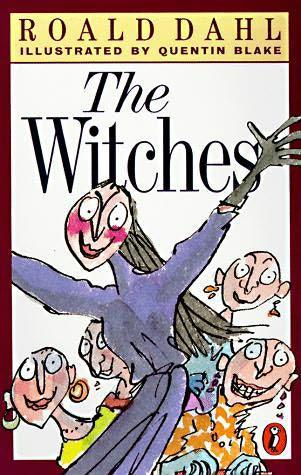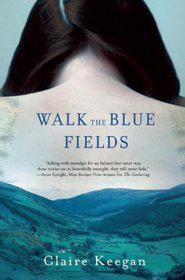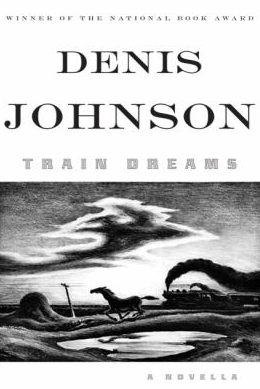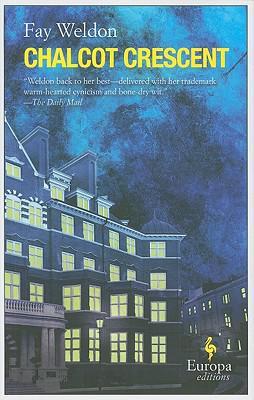No, I'm not writing about '50 Shades...' or anything sordid implied by my crazy-racy post title. No strippers, no wild, drunken parties, no sexytime. Sorry to disappoint. Picture, instead, the romance of eating dinner over the sink to minimize dirty dishes, hanging out in my p.j.s all day and forgetting to leave the toilet seat up, for the convenience of 3/5 of the testosterone-based household - who weren't there, anyway, rendering the point moot.
That sort of bachelorette: the scratch yourself liberally, belch loudly and swear with abandon behavior most women long for but seldom achieve. I lived the dream, thanks to an opportunity snatched when the rest of the family piled into the car, trekking to a relative's un-air conditioned wee house beside a wee lake which smells of death when the wind blows the right way - this year nearly dried up, thanks to horrible heat and lack of rain - in Wisconsin, to spend time sitting outdoors in the heat and humidity, upon the brown, crunchy grass, enjoying "quality family time."
Since I had to work Sunday, driving up just for Saturday would have meant six hours on the road for only three or four hours spent there. I elected to use the excuse stay home, instead, though it was a no-brainer difficult decision. Four hours slumped into a lawn chair, braving 90 degree heat vs. relaxing at home in the air conditioning, sleeping in my own bed, reading my own books until I could hold my eyes open no longer - with no interruptions! - taking advantage of unlimited internet access to play Words With Friends research deeply intellectual topics. Tough call. Really tough call.
I got quite a lot accomplished, too, depending on your definition of the term. Aside from working at the library for two shifts, I cleaned carpets, stopping when I wanted to stop, eating meals when I wanted to eat meals. In between chores, when my legs were crying out "rest me!" I did precisely that, no one around to look at me judgmentally for resting more than I actually worked. And naps... Oh dear god, the naps.
I read with utter abandon, no rhyme or reason to my madness. Grab and read, that was my modus operandi. No deadlines, no reviews required: luxurious. The only thing I missed was taking long, soaking baths as the bathroom's in the process of being remodeled, the tub not actually hooked up to the water or drain. Once it's good to go, just try getting me out of it. It's a whirlpool bath, pets, with a WATER HEATER.
Here's a taste of my three day's worth of reading, give or take a book or two already started prior to my utter abandon:
 The Witches by Road Dahl, Penguin reprint
The Witches by Road Dahl, Penguin reprint
(Originally published 1983, Jonathan Cape)
[Personal copy.]
My first Roald Dahl read ever! Like pretty much the whole western world, I've seen Willy Wonka (Charlie and the Chocolate Factory) over and over - it was a children's television special every year when I was growing up, back when programming for young people was rare and special. Later, I rented the brilliantly wicked Tim Burton version of James and the Giant Peach film for my children. I don't recall them being as enchanted by it as I was. Ah, well.
I missed so much great children's literature growing up, not only Roald Dahl but loads of others as well. It's never too late to catch up on quality children's fiction but I wish there'd have been a librarian to guide me through my early reading years, such as I was so fortunate to find as a teenager. She wasn't a librarian by trade, but rather one of two adults who took care of the high school library, along with we student helpers. The authors she recommended are still among my staples: William Faulkner, Willa Cather, etc.
What a difference a librarian makes! Or, a good librarian, I should say. The woman in charge of the tiny public library I knew, growing up, spent all her time and energy ripping books I couldn't check out from my hands, because they came from the adult section. They were picture books, mostly, about horses - books that included anatomical drawings of the naughty bits of the animals. Thank goodness she protected me from the evils of learning too much! Sad that's one of my very few lasting memories of her.
Because I'm ignorant when it comes to Welsh authors - Dylan Thomas and Richard Llewelyn the only two I could name - I was delighted to find Dahl was Welsh. I also learned - through poking around the interwebs - the character of the grandmother in the book, whose selflessness was beyond exemplary, was a tribute to his own mother.
Sadly, Roald Dahl's own life was marked by tragedy. He lost his tiny daughter Olivia after a bout with the measles left her with encephalitis. Later, his young son, Theo, was left brain-damaged after a car accident. Rather than accepting fate, Dahl and two friends worked to develop a machine to drain fluid from the brain, allowing Theo and others like him to live independent lives free from the necessity of medical equipment. Technology has since advanced but his drive, and love for his son effected a near-miraculous recovery for the boy at the time.
Today, the Roald Dahl Foundation - Roald Dahl’s Marvellous Children’s Charity - outlives him, providing sick children the opportunity to receive money to help fund their medical treatment. What a noble man.
I was fortunate in finding great deals on dirt cheap paperbacks of Dahl's works when our local Borders closed. I gave some copies away as Banned Books Week titles here on the blog but kept some of the duplicates for myself.
No special reason I chose to read The Witches. It was on the shelf, I saw it, I grabbed. I consumed the book in one long gulp. No surprise: it's fun, smart and wonderfully dark, the illustrations insanely fun. It also has the distinction of having been banned - generally recommendation enough for me. In this case a group of feminists took exception to the main character's grandmother saying, "All witches are women..." Of course they are! The men are warlocks silly, stupid people with uteruses - which only women have!
Blurb:
"An orphan boy...discovers the true nature of witches and then has the misfortune to be transformed into a mouse by The Grand High Witch of All the World... A curious but honest tale which deals with matters of crucial importance to children: smallness, the existence of evil in the world, mourning, separation, death." --The New York Times Book Review
No Disney ending. No let's spare the delicate children by avoiding topics of mortality. Children are smart so let's not talk down to them or pretend life isn't what it is. Considering all he suffered in his life, it's no wonder this was reflected in his prose.
He could also be damned funny, encouraging kids to look at the world in his weird, topsy-turvy way:
“She might even be your lovely school-teacher who is reading these words to you at this very moment. Look carefully at that teacher. Perhaps she is smiling at the absurdity of such a suggestion. Don't let that put you off. It could be part of cleverness.
I am not, of course, telling you for one second that your teacher actually is a witch. All I am saying is that she might be one. It is most unlikely. But--here comes the big "but"--not impossible.”- Roald Dahl, The Witches
I'm so happy to have finally been formally introduced to Roald Dahl. And I believe I'll pack this book away for my children's children, should they ever come about. Every child should know Roald Dahl, for more than just the film adaptations.
 Walk the Blue Fields: Stories by Claire Keegan, Grove Press, Black Cat (June 28, 2008)
Walk the Blue Fields: Stories by Claire Keegan, Grove Press, Black Cat (June 28, 2008)
[Library copy.]
What words describe Claire Keegan's style? How to convey the wonder?
Fairy tale -like, melancholy, fierce, doomed love, regret, pain and loss. Happy endings, there are not.
Ah, but the language! Keegan is too fine for this world. Her stories beg to be read over and over. Choosing my favorite story from this collection would be difficult. Instead, I'll share part of Amazon's blurb, describing one of them:
"In the title story, a priest waits at the altar to perform a marriage and, during the ceremony and the festivities that follow, battles his memories of a love affair with the bride that led him to question all to which he has dedicated his life; later that night, he finds an unlikely answer in the magical healing powers of a seer.
A masterful portrait of a country wrestling with its past and of individuals eking out their futures, Walk the Blue Fields is a breathtaking collection from one of Ireland’s greatest talents, and a resounding articulation of all the yearnings of the human heart."
From an interview with Keegan:
“It is valuable in anybody to be able to notice,” she says, “that is, to go outside oneself and one’s own feelings, and to realize how perhaps life is for someone else. I do think that capacity for wonder is tied also to our capacity to appreciate.
We can’t really live a good life if that life is not appreciated. So I would say that one of the ways – apart from time and its passage, of course, which is central and central to me as a fiction writer, because fiction is a temporal art and based on time – that I would gauge life is, ‘How much can you appreciate?’ And if you cannot appreciate, what it is you’re doing or using your money for or whatever it is, is it worth doing?”
 Train Dreams by Denis Johnson, Picador (May 22, 2012)
Train Dreams by Denis Johnson, Picador (May 22, 2012)
[Library copy.]
It was Pulitzer-nominated - one of the short-listed novels not chosen for the award, in the year no book was awarded the medal.
What did I expect from Train Dreams? I went into it with no pre-conceived notions but I didn't expect such a monotone narrator, an unexpectedly disappointing, emotionless beginning.
For a novella, it took a bit long to get going. Though the story was appealing enough, I didn't care much about the characters until the mid-point, after disaster struck and the main character began to show emotion and depth. After that I thought it was fantastic. But where's that spark earlier in the book? Perhaps this was one reason none of the Pulitzer nominees could prevail over the rest.
"Denis Johnson’s Train Dreams is an epic in miniature, one of his most evocative and poignant fictions. It is the story of Robert Grainier, a day laborer in the American West at the start of the twentieth century---an ordinary man in extraordinary times. Buffeted by the loss of his family, Grainer struggles to make sense of this strange new world. As his story unfolds, we witness both his shocking personal defeats and the radical changes that transform America in his lifetime."
Mostly, it reminded me of the fact I've not read much fiction about the West. I've read a little Cather but I'm hard-pressed to think of another title from this genre, aside from the hilarious The Sisters Brothers, which is in a totally different category, along with tall tales and occasionally slapstick humor.
 Chalcot Crescent by Fay Weldon, Europa Editions, 2009
Chalcot Crescent by Fay Weldon, Europa Editions, 2009
[Personal copy.]
"I love fiction. It is so much easier to escape from than fact."
- Fay Weldon, Chalcot Cresent
Another book with a great premise - an aging, outmoded writer finds herself hiding in her home as bill collectors continually bang on her door - that started out so wonderfully, wickedly funny then turned dull as dishwater as Weldon decided to have her character draft and re-draft sections of the book she's writing in real time, telling family stories which are delicious but not when repeated two or three times. Not a technique I'd really recommend so much or at least it didn't work well for me in this novel.
From Amazon:
"This is a wickedly sharp, history-bending, cosmos-colliding novel from one of Britain's most iconic authors. Meet Frances, Fay's might-have-been younger sister, an unreliable narrator who bends history and blends universes to create a sparkling and prophetic portrait of a once and future Britain. It's 2013 and eighty-year-old Frances is listening to the debt collectors pounding on the front door of Number 3, Chalcot Crescent. While she waits for the bailiffs to give up and leave, Frances writes. She writes about the boyfriends she borrowed and the husband she stole from Fay. She writes about the Shock, the Crunch, the Crisis and the Bite, about NUG the National Unity Government, about ration books and National Meat Loaf (suitable for vegetarians). She writes about family secrets...The problem is that fact and fiction are blurring in Frances' mind. Are faceless assassins trying to kill her younger daughter? Are her grandchildren really plotting a terrorist coup upstairs? What on earth can NUG have against vegetarians? And just what makes National Meat Loaf so tasty?"
What made the book interesting was its setting: in the near-future, post bank failures and foreclosures, at a time Britain became even more socialist than it already is. Some of her ideas were interesting - almost frighteningly plausible - but more than that it was her humor that kept the first half to three-quarters of the book such great fun. Weldon can be hilarious when she wants to be. She also sneaks in some good writing about reading:
"I am always concerned when people, finding out that I am a writer, apologize and say, 'I'm not much of a reader actually. I know I ought to, but I just don't seem able to find the time,' and then go on to tell me how they feel obliged to finish any book they begin. Well, of course, I say, you will be reluctant to open one in the first place, knowing what it might entail. It isn't meant to be like that, I assure them. If you begin a book and you don't like it, just through it away. Or take it round to a charity shop.'
So, I actually had Weldon's permission to toss her book aside at the three-quarter point... And did I mention she can be damn funny when she wants to be?:
"One's children are always recalling things one could swear one never said."
Isn't that the truth.
I've read better Weldon; I just wish I could recall which. And perhaps she received short-shrift, considering my weekend goal was to plow through as many books as possible. Who knows? I enjoyed parts of Chalcot Cresent very much and it won't put me off her other books. That says a lot. I may post more favorite quotes from the book over on Good Reads. Gives you something to look forward to, doesn't it?
Since I've rumbled along long enough, next time I'll catch you up on my Guardian Top 1,000 Novels project. I didn't finish my re-read of Pride and Prejudice, got through Death in Venice without feeling any huge thrill and wound up skimming my way through Mr. Blandings Builds His Dream House, which I found boring and repetitive. Bland, indeed.
Next: Ian Fleming's You Only Die Twice.
